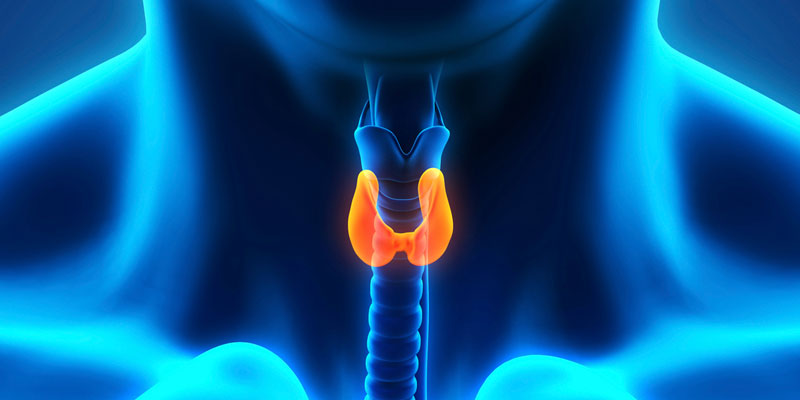Could you Have Sub-Clinical Hypothyroid Function?
The thyroid is a small, butterfly-shaped gland located at the base of your neck just below the Adam’s apple. It’s part of an intricate network of glands called the endocrine system.
The thyroid gland regulates your metabolism, heart and digestive function, muscle control, brain development and mood.
Your thyroid orchestrates the speed of every metabolic pathway within your body. This includes the speed of your reflexes, detoxification, heart rate, reflexes, digestive function, speed of thought, as well as your metabolism. Thyroid disorders are incredibly common and can result in an under active thyroid (hypothyroid) or an over active thyroid (hyperthyroid). Today we will be talking about the more common, under active thyroid…
How many boxes do you tick?
- Thinning hair
- Increased sensitivity to cold – especially cold hands and feet
- Elevated blood cholesterol level
- Constipation
- Dry skin
- Weight gain – unable to shift with healthy diet and exercise
- Puffy face
- Hoarseness
- Muscle weakness
- Muscle aches, tenderness and stiffness
- Pain, stiffness or swelling in joints
- Heavier than normal or irregular menstrual periods
- Slowed heart rate
- Depression
- Impaired memory
- Enlarged thyroid gland (goiter)
Comprehensive Testing
If you tick more than 3 or 4 boxes, you may like to undertake an Extensive Thyroid Blood Profile. TSH is simply not enough to ascertain the health of your thyroid. It is also important to know that the ranges that your doctor will say you are healthy in, are simply not the same as the optimal ranges for vibrant energy and total well-being. Many people are sub-clinical hypothyroid, so not optimal, and low in energy and showing a number of signs and symptoms. Sadly, this is when your GP is likely to offer anti-depressants.
Causes of thyroid disorders include
- Iodine deficiency – Your thyroid hormones are made out of iodine, so a deficiency in iodine will result in low thyroid hormone. NEVER take iodine without Selenium (selenium draws iodine into the cell)
- Low Nutrient Status – especially iodine, selenium, zinc, vitamin D, B2, B3, B12, Vitamin C
- Viral Activity – This weakens thyroid function, especially Epstein Bar Virus.
- Poor liver function –T4 converts to T3 in the liver, thus, a sluggish liver or any liver disorders, such as raised liver enzymes etc, will greatly impact thyroid health.
- Heavy metals and high toxic load – These can either damage the thyroid, cause autoimmunity, or bind to other essential nutrients and further excrete them out of the body.
- Gut Health: 70% of your immune system lies in the gut, so if there is gut dysbiosis/sibo/candida etc present, this will lessen your ability to absorb nutrients and will provide an environmental beneficial to viral load, which in turn weakens the thyroid.
Miriam typically sees clients who
- Suspect they have a thyroid problem, but their doctor says their TSH is normal.
- Are taking Thyroxine, but it does not make them feel any better.
- Would like to stop taking Thyroxine or do not want to go on it in the first place.
- Have undiagnosed Hashimoto’s Disease.
- Are chronically iodine deficient
- Experience adrenal fatigue
- Have fatty liver, or raised liver enzymes
- Suffer from digestive complaints
Thyroid disorders need to be treated by a multi-factorial approach. Disorders of the thyroid gland respond very well to herbal and nutritional medicine.
Miriam Young is highly experienced in treating thyroid disorders.


